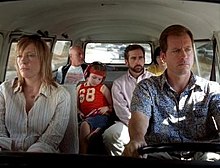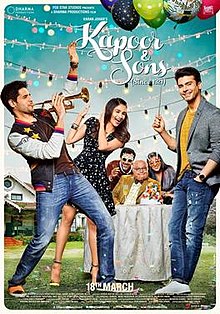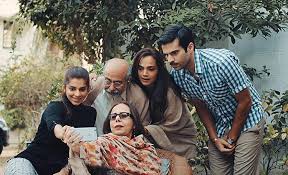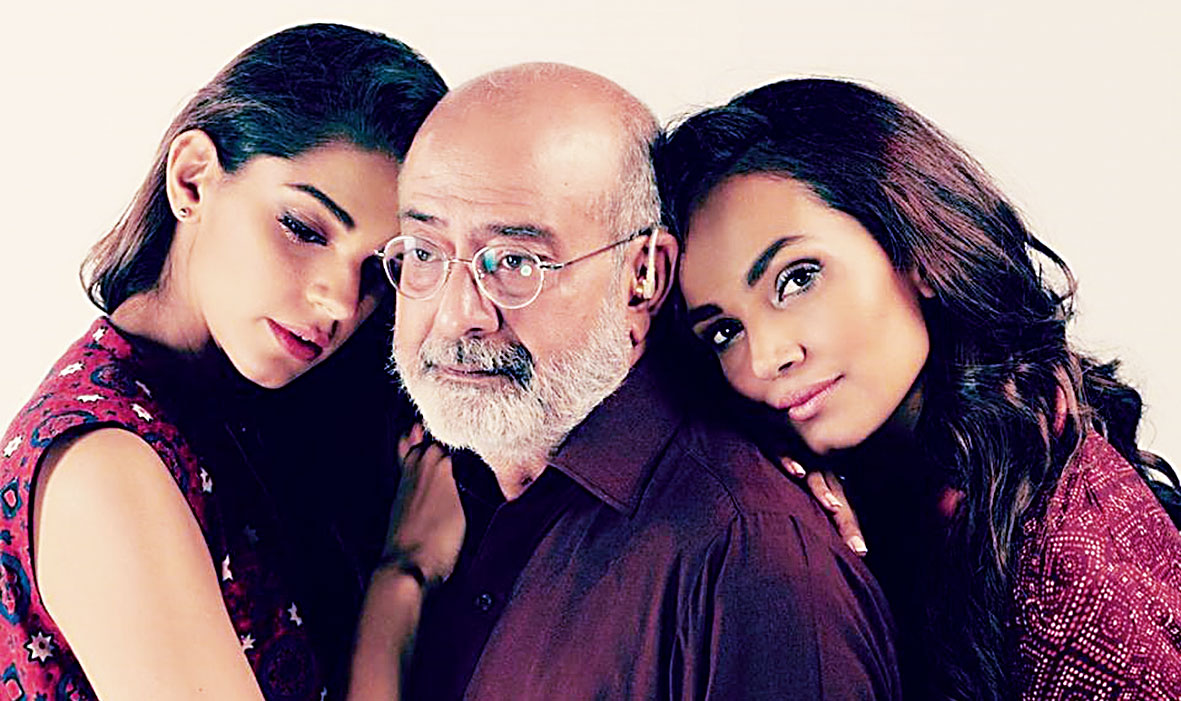Sayantan Ghosh is an editor by day and writer by night. He writes on books, films and culture. He tweets at @sayantansunnyg
There’s a wonderful scene towards the climax of another film about dysfunctionality in families, 2006’s Little Miss Sunshine, in which the family is in a VW van approaching the hotel where a beauty pageant (which is their destination) is being held. They can see the Inn and it seems well within reach and they think they have finally made it, except they can't find the exit that will actually get them there. I hark back often to that moment—a reminder that when resolutions seem within touching distance it’s only then we realise the illusory nature of them. It’s a wonderful film with Steve Carrel delivering perhaps the most affecting performance of his career, but it’s this scene which stands out even after several viewings.
Both Kapoor and Cake will possibly also pass the Bechdel Test with considerable ease, because the female leads in these pictures are consistently more interested in their careers (whether realised or potential), disappointments and life choices than the men in their lives. It’s another of those things which make these films so relatable and refreshing. It’s not only the fleshed out women characters, but also that the well-written male characters, despite their faults, don’t reek of chauvinism or testosterone-driven machismo.
Woody Allen who made Hannah and Her Sisters, perhaps his best written film of all time, has an anthropologist’s gaze at his characters and the circumstances he puts them in. His interest lies not in the resolution but in the process, which makes Hannah’s complex and layered narrative come alive. A lot of the credit for Hannah, also about the rebellious bond between sisters much like Cake, goes to his actors who play flawed characters yet not only manage to make them likable until the end, but also make their wounds recognisable.
The relationships in these films, much like in real life, are both fractious and tender at once, unpleasant secrets are guarded but always to protect another member—even if it’s sometimes at the cost of an outsider. We see parents, children and siblings permanently standing as each other’s Night’s Watch, holding the wall which guards them from society’s infiltrators. Very few films about large families manage to get these correspondences right, but those which do, do it with enormous intimacy; never like a voyeur but like a neighbour who gets a sneak peek of an odd family every time he visits.
I was at a dinner once many summers ago. It was sometime in the late 1990s and my parents and I were at the house of somebody my father was doing some business with back then. The couple, visibly older than my parents, also had a son merely a couple of years older than me. It was one of the most uncomfortable evenings I have spent around food in my whole life. The business deal was possibly falling through which made my father unhappy, my mother and I were unhappy that we were dragged into that drab dinner table conversation, the other boy in the room had told me how he wanted to be a musician but his parents wouldn’t allow him and was constantly simmering with rage, his father was unhappy because the meat which was cooked was too tough and demanded more effort than he was willing to put, and his wife because she had to silently live with his complaints.
Yet none of us, except the family patriarch complaining about the meat every once in a while, really said anything. We pretended to have adjusted to the situation at hand, even though none of us were equipped to do that. We quietly ate, said good nights and goodbyes and walked out of their apartment and walked into the elevator. My parents started fighting in the elevator and continued in the car as well. I don’t know if the other couple did the same once we left. Their son tried to kill himself a couple of years later. But that evening none of us got the release which may have fractured some equations but might had also helped in unburdening us of our feelings. Cake, Hannah, Kapoor, Sunshine, August—they are such dinner table conversations where when the heat gets too much the players don’t hold back from taking on each other in the open. They scream and argue, they shout, confront, they even drag each other by the hair when the nerves become too unhinged to be calmed by words alone.
And on some days that’s all we need. For someone to hold our hand when the makeup is off and put us in front of the mirror to take a long, hard look at ourselves. We may not be prepared for what we see in our reflections, but at least we’ll have someone we love standing next to us to remind us that it’s all right to be not perfect.
But family is cruel and unsparing too. We are deft at taking each other for granted, we bite off more than we can chew and are often left with tough meat stuck between our teeth which we can neither have nor discard.That’s why we need literature and cinema, and art and music, to help us rebuild ourselves whenever we feel betrayed by the world.That’s also why films of such nature manage to leave indelible marks in our consciousness. They don’t wish an ideal for us like most popular cinema has attempted to do for so long, but promise us possibilities even within the limited scopes of our dismantled present. Our own private aide-mémoires nudging us towards the Tolstoian thought that all happy families are alike, but every unhappy family can learn to be happy in its own way.
Few notable ‘dysfunctional’ favourites:
The Royal Tenenbaums, Captain Fantastic, Utsab, The Squid and the Whale, Margot at the Wedding, Titli,The Darjeeling Limited, Dutta Vs Dutta, Khosla Ka Ghosla, Monsoon Wedding
The final lines we hear as Cake culminates is from the soulful ‘Tiri Pawanda’ composed and performed by The Sketches, a Sufi folk rock band from Sindh, which say:
When the birds return,
And fly around noiselessly
Then, we shall meet
Isn’t that what a reunion is all about? Worlds colliding cacophonously, disturbing some set order. In this case it’s what we like to call a dysfunctional family, but it could be the same with friends, lovers, or even old acquaintances from work.
From the outset, the assiduously scripted and shot Cake is a simple film about a medical emergency which brings a family together after a long time of staying away from each other. Zareen lives with and nurses her ailing parents, while her siblings Zara and Zain live away building their own lives isolated from this core where they all belong. When their father is hospitalised they are reunited at their palatial home in Karachi, where skeletons and old family secrets which have haunted them for years expectedly start tumbling out of the closet.
Cake is cut from the same cloth as Kapoor & Sons, August: Osage County and even Hannah and Her Sisters — all films about members of families who are struggling to cope with each other’s history as well as vicissitudes. Both Kapoor and August begin in similar fashion, a tragedy brings a family together first and eventually closer. Kapoor, made delicately by Shakun Batra, was also possibly one of the first mainstream Hindi films produced by a giant production house in which the so-called hero played a gay man without any of the embarrassing tropes we are used to seeing in Bollywood’s cinema. As his mother struggles to deal with his identity, we not only witness their relationship evolve but Hindi cinema too took a step forward and in the right direction. It’s only ironic then that a host of popular male stars refused to play this particular role due to his sexual orientation in the film, as was reported widely.

Little Miss Sunshine is another film about dysfunctionality in families Wikipedia

Kapoor & Sons, made delicately by Shakun Batra, was also possibly one of the first mainstream Hindi films produced by a giant production house in which the so-called hero played a gay man without any of the embarrassing tropes we are used to seeing in Bollywood’s cinema Wikipedia











